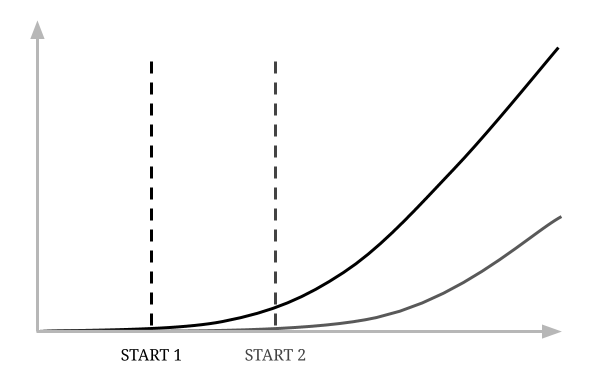More than 80% of Americans want to write a book at some point in their lives. If you’ve ever tried to write the first draft of a book, you likely fall between one of two categories: planner or pantser. Planners outline their novel before writing it. Pantsers “fly by the seat of their pants”—they let the characters lead the story. This is all well and good for a book’s first draft, but what about life, which is arguably the most important novel you’ll ever write?
Planning as a safety net
Planner or pantser? You’re a planner if you like knowing what’s going to happen before getting started. You hate getting stuck, and you want to have as much information as possible before going down a specific path.
Considering the range of all future outcomes can be crucial when making decisions. While overconfidence and hasty choices may lead to dumb decisions, they may also result in inintended consequences. A classic example is the Cobra Effect, when we think in terms of simplistic, linear chain of events.
The term originated during the British rule of colonial India. The government wanted to tackle the rising number of cobra snakes in Delhi. Their offered a bounty for every dead snake. Many rewards were claimed and the number of snakes spotted in Delhi started to decrease. But the number of dead snakes presented for the reward kept on rising. Why? Turned out, business people had started breeding snakes to get the bounty. The government, now aware of the scheme, stopped offering the reward. As a result, the cobra breeders set the now worthless snakes free, increasing the cobra population in Delhi. This is a perfect example of first-level thinking.
Planners tend to avoid first-level thinking by spending time considering potential consequences, and plotting a course of action based on their research. They read books and articles, talk to colleagues, conduct interviews, ask questions on social media. They document the process and define a detailed plan to achieve their goal.
While a system without a goal is like a marathon without a finish line, spending too much time designing a system is also a great way to never get started. Overplanning is often procrastination in disguise—studies shows that our brain loves doing what feels rewarding now (doing research, reading, watching video tutorials) instead of starting the hard work.

That’s why, while a bit of planning can go a long way, pantsers also have many advantages when it comes to productivity.
Planner or pantser: focus on the process
You’re a pantser if you better enjoy thinking while you’re doing, not before. You like figuring out things as you go, and you learn best through problem-solving. You tend to seek additional knowledge and tools on a need-to-use basis.
While pantsers have a bad reputation, they often manage to finish their first draft quicker. When working on something new, this iterative process means more progress in the long term. Being successful is rarely about your ability to plan—it’s about your ability to act.
That’s why the 10 minute rule of productivity is so powerful. Instead of planning for too long—procrastinating?—tell yourself: “I’ll get started with this one task for ten minutes. Once I get to the ten-minute mark, I’ll decide whether I want to keep going, or whether I need more time planning.”
Pantsers may make more mistakes, but failing faster means a faster learning process, and ultimately, a more effective way to reach their goals. Along the way, they get many mico-wins to celebrate and many opportunities to learn from their failures. Do a bit of planning, from learn but embrace your pantser side!
